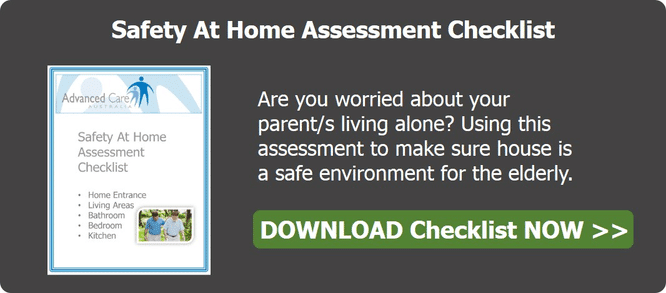A lot of people find it very stressful to acknowledge that they need the assistance, and then taking the next step in actually allowing carers through the door can be very daunting. So how can you help your parents / loved ones to come to terms with having in home support? How do you help them adjust?
When someone first needs care they are usually dealing with loss; loss of independence to some degree, it could be a physical or mental loss of capacity or they just see needing help as a sign of weakness.
Accepting support from a 'stranger' means relinquishing privacy to an extent and adjusting to new routines. It is important family members understand this and listen to their loved ones concerns and fears around introducing support. It is also very important that they find a service or worker who is sensitive to what they are experiencing.

SIX WAYS A SERVICE PROVIDER CAN HELP:
1. Listening
Ensuring the person who needs support is actually 'driving' the support they need. How do they want things done and when? It is important that the service provider and staff do not come in with preconceived ideas about how they will assist, it is vital they listen to the clients wants and preferences and plan their support around these. Workers coming into someone's home and wanting to do things 'their way' can cause a lot of unnecessary anxiety and the right provider will ensure that stress is avoided. So first point; be particular with the agency you choose.
2. A Clear Plan
Having a clear plan that is agreed on by the client and the service provider helps to spell out what the support carer is required to do day to day. This in conjunction with having an accountability system through monitoring the performance of the support carer ensures that the right agency is delivering the service that the client has requested. In other words, controlling the plan and making sure it is being followed by the new aged carer.
3. Small Team
By keeping the number of support carers servicing one particular client to a small team, basically, enough to ensure there is always staff available and familiar with the client's routine, but not too many that it becomes a 'revolving door', results in a stable environment. This reduces the chance of anxiety from the elderly where the unavoidable scenario occurs when a carer must be replaced for reasons outside of the agencies control.
4. Meet First
Where possible, we believe it is imperative for the client to have a say in who will support them and to meet their carer before the new aged carer actually joins the team of support people for the client.
5. Trust
It is vital for all aged care clients to know their rights as a consumer and to be informed of the process for raising concerns or, where necessary, how to make a complaint. Often it is about the aged person being comfortable with raising concerns without fear of retribution. This means to trust in their agency is very important.
6. Buddies
When introducing new aged carers to an elderly person, we believe it is important to ensure the new aged carer is provided with a "buddy" or training shift to get them familiar with the clients routine. This provides an important opportunity for the aged person to build rapport and confidence in the new aged carer while in the presence of someone they trust, their known aged carer.

